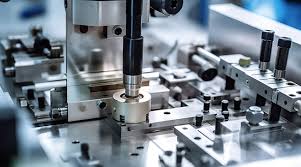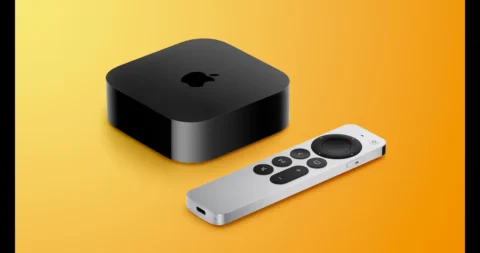What Are D-Sub and M12 Connectors?
In the world of electronics and industrial applications, connectors play a crucial role in ensuring seamless communication between devices. Among the most popular connectors are D sub connector and M12 connectors. These connectors are widely used in various industries due to their reliability, versatility, and durability. Whether you’re dealing with data transmission or industrial automation, understanding the differences between these two types of connectors is vital for making informed decisions.
Understanding D-Sub Connectors
What Is a D-Sub Connector?
A D-sub connector, also known as a D-subminiature connector, is a type of electrical connector that is shaped like a D. It was first developed by ITT Cannon in the 1950s and has since become a staple in both consumer and industrial electronics. The “D” shape ensures correct orientation during connection and helps prevent improper mating, which is critical in applications requiring secure and reliable connections.
Types of D-Sub Connectors
There are several variations of D-sub connectors, categorized based on the number of pins or sockets they have. The most common types include:
- DB9 Connector: 9 pins, often used for serial communication.
- DB15 Connector: 15 pins, frequently seen in video game controllers and older computer peripherals.
- DB25 Connector: 25 pins, primarily used in parallel connections and printer interfaces.
- High-Density Connectors: These connectors have more pins in the same amount of space, offering higher connection capacity.
Applications of D-Sub Connectors
D-sub connectors are versatile and are found in a wide array of applications, such as:
- Computer Interfaces: Serial and parallel ports.
- Telecommunications: Connecting communication equipment.
- Industrial Machinery: Machine control and signal transmission.
- Aerospace and Military: Rugged, secure connections in harsh environments.
Key Features of D-Sub Connectors
Why Choose D-Sub Connectors?
D-sub connectors offer several advantages that make them a preferred choice for many applications:
- Durable Construction: D-sub connectors are made from robust materials, ensuring longevity even in harsh conditions.
- Secure Connection: The D-shaped design and screw-lock mechanisms ensure a reliable and tight connection.
- Wide Range of Options: With varying numbers of pins and high-density versions, D-sub connectors offer flexibility in design.
Advantages of D-Sub Connectors
- Versatility: D-sub connectors can handle various data types, from low-speed serial communications to high-density video connections.
- Cost-Effective: These connectors are affordable and widely available.
- High Reliability: D-sub connectors have a long track record of providing dependable connections in critical systems.
Understanding M12 Connectors
What Is an M12 Connector?
An M12 connector is a circular connector with 12 mm locking thread, typically used in industrial applications, especially in automation, sensor systems, and robotics. The “M” stands for “metric,” indicating the connector’s standard sizing. M12 connectors are highly valued for their ruggedness and ability to withstand harsh environmental conditions, making them ideal for heavy-duty industrial use.
Types of M12 Connectors
Just like D-sub connectors, M12 connectors come in various forms:
- A-coded M12 Connector: Used for sensors and actuators.
- B-coded M12 Connector: Common in fieldbus connections like Profibus.
- D-coded M12 Connector: Ideal for Ethernet-based networks.
- X-coded M12 Connector: High-speed data applications like Gigabit Ethernet.
Applications of M12 Connectors
M12 connectors are primarily used in:
- Factory Automation: Connecting sensors, actuators, and control systems.
- Transportation: Providing reliable connections in trains, buses, and public transport.
- Robotics: Ensuring secure data transfer in automated machinery.
- Networking: Establishing Ethernet connections in industrial environments.
Key Features of M12 Connectors
Why Choose M12 Connectors?
M12 connectors are designed to endure the tough conditions of industrial environments, offering features like:
- Environmental Protection: M12 connectors often come with IP-rated protection against dust, water, and extreme temperatures.
- Compact Design: Their small form factor allows for installation in tight spaces.
- Reliable Performance: M12 connectors ensure secure data transmission even in demanding applications.
Advantages of M12 Connectors
- Ruggedness: Built to withstand vibration, extreme temperatures, and chemical exposure.
- Flexible Configurations: Available in different coding options (A, B, D, X) to suit various industrial applications.
- High-Speed Capabilities: Particularly with X-coded connectors, M12 connectors can handle data rates of up to 10 Gbps.
D-Sub vs M12 Connectors
Differences Between D-Sub and M12 Connectors
While both D-sub and M12 connectors are reliable, they serve different purposes:
- Shape and Design: D-sub connectors have a rectangular shape, while M12 connectors are circular with a threaded locking mechanism.
- Applications: D-sub connectors are often found in computers and communication equipment, while M12 connectors are more commonly used in industrial automation and field networks.
- Durability: M12 connectors generally offer higher environmental protection, making them suitable for outdoor and harsh industrial settings.
When to Use D-Sub or M12 Connectors
Choosing between D-sub and M12 connectors depends on the specific needs of your application:
- Use D-sub connectors when you need a cost-effective, high-density solution for data transmission in controlled environments.
- Use M12 connectors when your application requires robust, weather-resistant connectors for industrial or outdoor use.
Connector Selection Tips
How to Choose the Right Connector for Your Application
Selecting the right connector is essential for ensuring reliable performance. Here are some tips:
- Understand Your Application Requirements: Consider the environment, data transmission needs, and mechanical requirements of your application.
- Consider Connector Ratings: Pay attention to IP ratings for environmental protection and data speed requirements.
Factors to Consider When Selecting a Connector
- Durability: How rugged does the connector need to be?
- Size: Is there enough space for the connector to fit?
- Data Requirements: How fast does data need to be transmitted?
- Environmental Factors: Will the connector be exposed to dust, water, or extreme temperatures?
Conclusion
When it comes to choosing between D-sub connectors and M12 connectors, both have their strengths. D-sub connectors are versatile and cost-effective, ideal for controlled environments, while M12 connectors excel in harsh, industrial settings where durability and high-speed data transmission are key. By understanding the differences between these connectors and the specific needs of your application, you can make an informed decision that ensures reliable performance and longevity.








